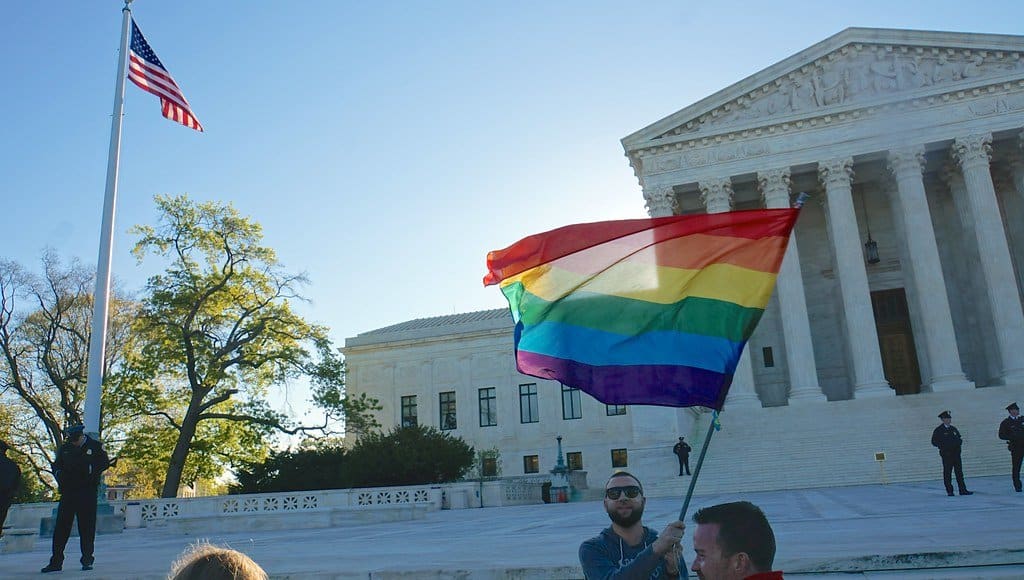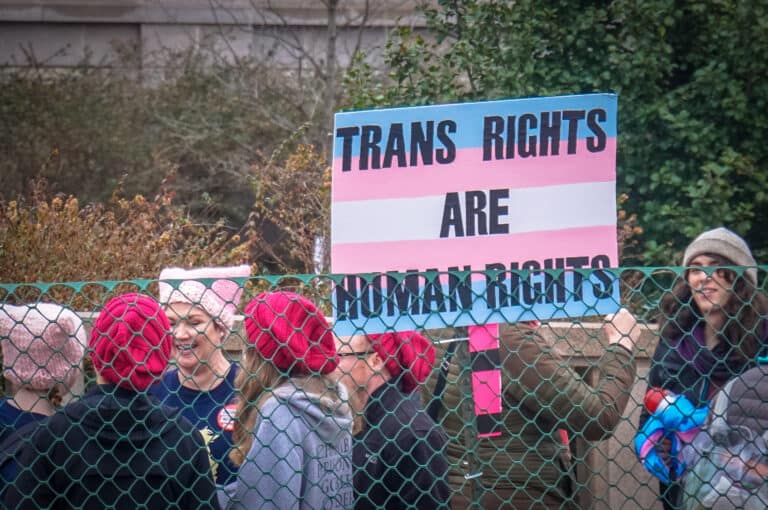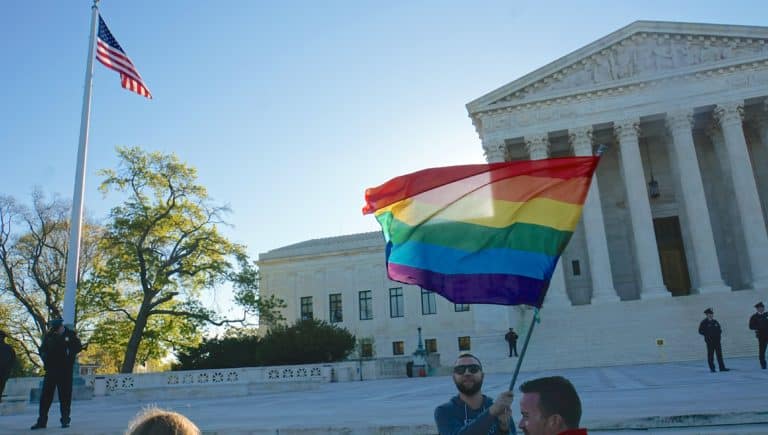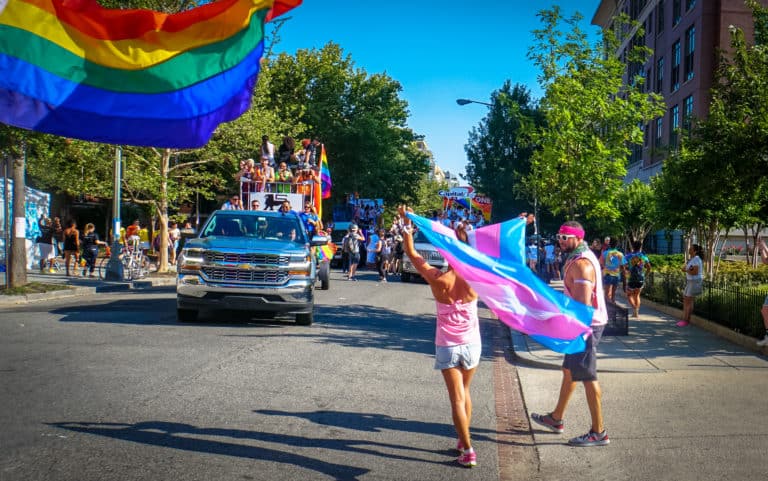Yesterday we reviewed the opening briefs for the LGBTQ employees in Bostock, Zarda, and Harris. Today we begin summarizing the amicus briefs submitted in support, starting with organizations that focus primarily on LGBTQ rights.
Amicus Briefs
LGBTQ Rights Organizations
Writing with respect to Bostock and Zarda, Lambda Legal explains that while most appellate judges to have considered Title VII’s extension to discrimination because of sexual orientation have come down in favor of coverage, some have not. The brief discusses the analytical flaws in three particularly influential anti-coverage opinions: Judge Skyes’s dissent in Hively, Judge Lynch’s dissent in Zarda, and Judge Ho’s concurrence in Wittmer. For example, the Hively and Zarda dissents concentrated on whether “sex” means sexual orientation, when the question should be whether discrimination because of sexual orientation is discrimination because of sex. Moreover, the Zarda dissent raised an extra-statutory prerequisite, asking whether permitting sexual orientation discrimination claims would serve the purpose of equalizing employment opportunities for women.
Turning to Harris, Lambda Legal argues that discrimination because of gender identity must be discrimination because of sex since the discrimination would not have occurred but for the employee’s sex assigned at birth and if the employer had not taken that sex into account. The Court should not focus on whether “sex” means gender identity, but should instead concentrate on whether discrimination because of gender identity is discrimination because of sex. Moreover, the Court should not worry about what Congress thought sex meant in 1964, because Stephens should win even if sex is given its most limited meaning.
The National LGBT Bar Association, National Trans Bar Association, LGBT Bar Association of New York, Bay Area Lawyers for Individual Freedom, and LGBT Bar Association of Los Angeles frame the cases as a test of the Court’s jurisprudence on customer preference. In Zarda and Harris, the employers terminated the LGBTQ employees at least in part because of perceived anti-LGBTQ attitudes among customers. Amici review the Court’s past decisions holding that customer preference is irrelevant to sex and other discrimination claims under Title VII and similar civil rights statutes and urge the Court to uphold that principle here.
The Trevor Project, PFLAG, and Family Equality say that the stories their organizations hear while serving LGBTQ individuals confirm that discrimination because of sexual orientation and gender identity are inseparable from sex discrimination. As one example, a transgender man who reached out to Family Equality for help had a job offer revoked after the driver’s license he used for employment paperwork reflected that he was assigned as female at birth.
interACT: Advocates for Intersex Youth and a group of experts in intersex issues contends that sex cannot be reduced to the male/female binary because intersex people (nearly 2 percent of infants) are born with bodies that transcend it. Nonetheless, intersex people are often arbitrarily assigned as either male or female at birth, an identity many later reject. The Court does not have to define “sex” to reach a conclusion in favor of the employees in these cases because they should win even if sex just meant male or female. But if the Court chooses to do so, it should avoid a definition that ignores the irrefutable existence of intersex people.
A group of LGBTQ rights organizations, led by GLAD and the National Center for Lesbian Rights, assert that the Court should not interpret Title VII by manufacturing an unworkable exclusion for sexual orientation and gender identity discrimination that is not in the text. When trying to apply an interpretation of Title VII that excludes sexual orientation discrimination, lower courts have struggled to reach consistent results. In regularly declining to apply an interpretation that excludes gender identity discrimination, those courts have managed to sidestep similar confusion. The Court can only create clear guidance by affirming that there is no exclusion.
The Transgender Law Center, Center for Constitutional Rights, and 44 other non-profit and grassroots organizations emphasize the harrowing consequences of continued discrimination against transgender workers. Without equal access to employment, transgender people experience higher rates of homelessness and poverty and are more likely to be trafficked or incarcerated and to suffer from severe health issues.
The Transgender Legal Defense and Education Fund and 33 organizations serving transgender individuals say that if the Court opts to define “sex” more precisely, it should consider the scientific consensus that every individual has an innate, internal conception of their sex that is the only dependable indicator of what their sex is. Sex should not be confined to sex assigned at birth.
A group of LGBTQ members of the legal profession and law students assert that the Court should hold that discrimination because of sexual orientation and gender identity is necessarily sex discrimination because the text requires it and a contrary decision could lead to more discrimination by employers based on other sex stereotypes.
A group of Wisconsin-based advocacy organizations write to distinguish between two approaches to statutory interpretation: “original meaning” and “expected application.” Even if the meaning of sex when Title VII was passed was limited to biological sex, it is impossible to discriminate against an employee on the basis of sexual orientation or gender identity without taking biological sex into account. The “original meaning” approach requires a decision in favor of the LGBTQ employees whether or not lawmakers in 1964 expected that Title VII’s bar on sex discrimination would operate to protect LGBTQ people. Furthermore, a ruling in favor of the employees would bolster the Court’s institutional legitimacy because most Americans support prohibitions against LGBTQ discrimination, it would be most consistent with the Court’s Title VII precedents, and helping to alleviate discrimination would have socially beneficial effects.
Georgia Equality reports that a growing number of Georgians overwhelmingly support LGBTQ employment protections because discrimination at work can lead to more harassment of LGBTQ individuals, undermine their economic security, heighten the risk of violence against them, and result in poorer mental health outcomes.










Daily News & Commentary
Start your day with our roundup of the latest labor developments. See all
April 22
DOL and EEOC beat the buzzer; Striking journalists get big NLRB news
April 21
Historic unionization at Volkswagen's Chattanooga plant; DOL cracks down on child labor; NY passes tax credit for journalists' salaries.
April 19
Alabama and Louisiana advance anti-worker legislation; Mercedes workers in Alabama set election date; VW Chattanooga election concludes today.
April 18
Disneyland performers file petition for unionization and union elections begin at Volkswagen plant in Tennessee.
April 18
In today’s Tech@Work, a regulation-of-algorithms-in-hiring blitz: Mass. AG issues advisory clarifying how state laws apply to AI decisionmaking tools; and British union TUC launches campaign for new law to regulate the use of AI at work.
April 17
Southern governors oppose UAW organizing in their states; Florida bans local heat protections for workers; Google employees occupy company offices to protest contracts with the Israeli government